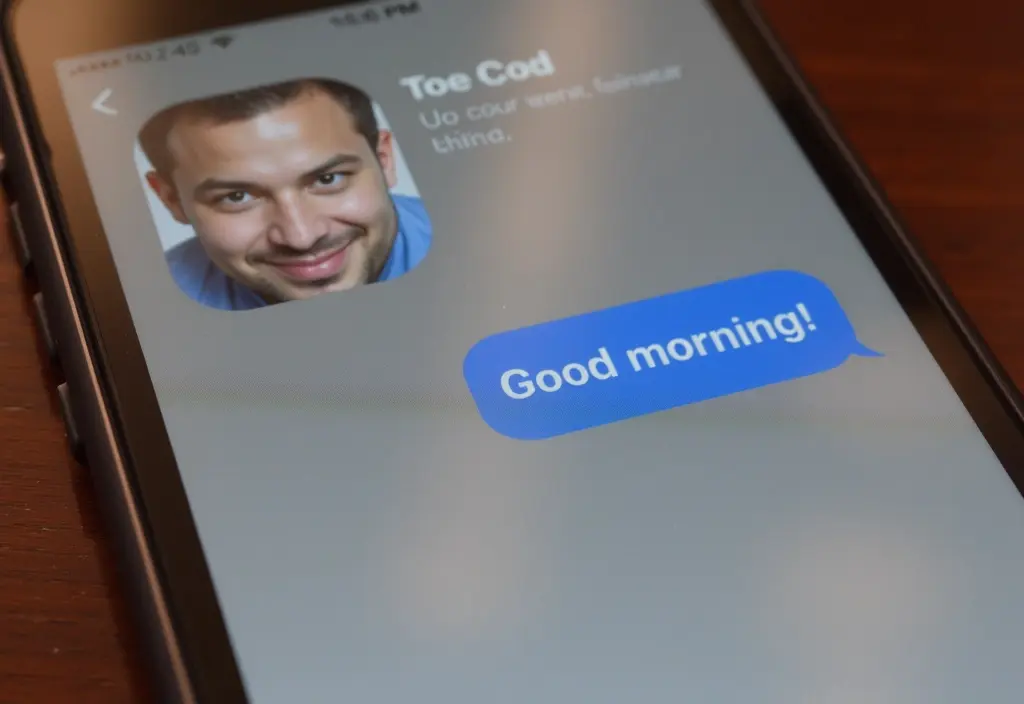It’s a feeling that can stop you in your tracks. One minute, you’re just going about your day—washing your face, catching your reflection in a car window, seeing yourself on a security camera feed. The next, a cold, strange sensation washes over you. The person staring back… it’s you, but it’s not. There’s a sudden, jarring disconnect. A glitch in the system. For a single, breathless second, the automatic recognition you’ve relied on your entire life simply isn’t there. That experience of not recognizing yourself in the mirror is more than an odd thought. It’s a deep, often unnerving hiccup in how we see ourselves.
This sensation can be anything from a fleeting moment of weirdness to a deeply distressing state of alienation that sticks around. It’s a thoroughly human experience, one that touches on psychology, the wiring of our brains, and even philosophy. It makes us ask a huge question: If I’m not the person I see every day, then who am I? The point of figuring this out isn’t to find a scary label for it. It’s about learning to read a powerful signal your mind and body might be sending. Let’s pull back the curtain on this experience, from the simple reasons to the complex, to really understand what it means to look in the mirror and see a stranger.
More in Connection & Dating Category
Key Takeaways
- It’s a Common Misfire: A brief moment of feeling disconnected from your reflection is surprisingly normal. It’s often just a symptom of stress, burnout, or big life changes, not a sign of a serious issue.
- A Gap Between Mind and Body: The feeling can come from a mismatch between your internal self-image—how you feel you are—and your physical appearance, which is always changing.
- When It Sticks Around: If the feeling is persistent and causes real distress, it might be related to depersonalization, a state of feeling detached from your own body and thoughts.
- Your Brain on Overload: Self-recognition is a complex job for your brain. Intense stress and anxiety can mess with the neural wiring, causing a temporary short circuit in how you perceive yourself.
- A Nudge for a Self-Check: Often, this experience is just a sign to check in with yourself. It can mean you’re going through a major personal transformation or that your mental health needs a little attention.
Have You Ever Felt Like a Stranger in Your Own Skin?
I will never forget it. I was 20 years old, drowning in my university finals. My life had shrunk to a grim little loop: study all night, drink terrible coffee, sleep for a few hours, repeat. One night, I dragged myself to the library’s public restroom for a break. The fluorescent lights buzzed overhead, casting a harsh, sterile glare that made everything look sickly.
I looked up from the sink. I met my own eyes in the mirror.
And nothing happened. For a solid, heart-stopping three seconds, I had zero idea who I was looking at. The face was technically familiar. I knew the parts—the eyes, the nose. But there was no spark. No flicker of “me.” The person in the mirror looked hollowed out, exhausted. A total stranger. The thought that blazed through my mind wasn’t, “I look terrible.” It was a far more terrifying, “Who is that?” The moment vanished as fast as it arrived, but it left my heart pounding and a deep sense of dread in my gut.
If you’ve ever felt this, you’re not crazy. And you’re not alone. It’s a profoundly personal and isolating feeling, but it’s a shared one. It’s a hiccup in the steady stream of “I” that we think of as our self. It isn’t a sign you’re losing your mind. More often than not, it’s just a sign that you’re a human being, pushed to your limits by a demanding world.
So, Why Does This Happen on a Basic Level?
That moment in the library wasn’t some supernatural event. It was a symptom. The feeling of not recognizing yourself in the mirror often starts as a quiet whisper from your subconscious. It’s a hint that the bridge between your inner world and your outer self has become unstable. Getting to know the common culprits is the first step in taking away the fear of this strange sensation. It’s about looking at the simple, day-to-day pressures that pile up until our self-perception flickers like a faulty light.
Is It Just Stress and Exhaustion Talking?
Your brain has a finite amount of bandwidth. When you’re juggling too much—work deadlines, family drama, money worries, and not enough sleep—the whole system starts to lag. Basic functions that usually run on autopilot, like recognizing your own face, can start to glitch out.
This is why chronic stress and plain old exhaustion are the number one triggers for this feeling. When your body is swimming in cortisol, the stress hormone, it shoves your brain into survival mode. It’s all hands on deck for immediate threats. Higher-level thinking, like the complex processes of self-awareness and identity, gets pushed to the back of the line.
You’re so focused on just surviving the day that you’re not really in your body. You’re piloting it remotely. So when you finally stop and look in the mirror, you’re not just seeing a tired face. You’re seeing the physical shell your mind has been operating from a distance. The connection feels weak because it has been weak. Your mental energy was tied up elsewhere, and that momentary blank stare in the mirror is the startling proof.
Could It Be a Sign of a Deeper Disconnect?
Sometimes, the problem goes a little deeper than being tired. It can point to a growing canyon between who you think you are and who you see. We all have a mental photograph of ourselves—our self-image. It’s our internal idea of who we are, what we stand for, how we feel. But the person you see in the mirror, your self-perception, is based on a physical reality that changes constantly. In a perfect world, the photo and the reality match.
But life isn’t perfect.
Big life changes, even good ones, can make that mental photograph obsolete. Maybe you’ve lost a lot of weight, but in your head, you still reach for the XL sizes on the rack. Or maybe you’ve simply gotten older, and the face in the mirror—with its new lines and different texture—doesn’t match the 25-year-old you still are in your heart. This mismatch can create that jarring moment of non-recognition. Your brain, working from an old photo, looks at the new evidence and flags an error. It’s a psychological lag, a moment where your mind is struggling to catch up with your body.
When the Feeling Lingers: What Is Depersonalization?
For most people, the experience is a weird blip that’s gone in an instant. But what if it isn’t? What if that feeling of being a stranger to yourself decides to move in and become a constant, unwelcome roommate? When that happens, it might be pointing toward a psychological state called depersonalization.
Depersonalization is a type of dissociation. It’s a defense mechanism where your mind detaches from your thoughts, feelings, or body. People who experience it often describe it as feeling like you’re watching your life from outside yourself, like it’s a movie and you’re in the audience. The world can feel muffled, unreal, or foggy. The emotional thread connecting you to your own memories, experiences, and even your own body wears thin.
Looking in the mirror during an episode of depersonalization can be profoundly disturbing. The lack of an emotional link to your own reflection is absolute. You see the face, you know it’s yours, but the feeling of it being you is gone. It’s a visceral, sensory emptiness. Some describe it as feeling like their reflection is a robot or a doll that they are controlling.
This often comes with its partner, derealization—where the world around you feels strange and unreal. Together, they can form Depersonalization-Derealization Disorder (DPDR). It’s important to know this isn’t psychosis. People with DPDR are painfully aware that their feelings of unreality are just feelings, which is exactly what makes it so frightening. The most common triggers include:
- Severe trauma or PTSD
- Intense anxiety and panic attacks
- Long periods of extreme stress
- Use of certain recreational drugs
If this persistent sense of being disconnected sounds familiar, it’s a clear sign to reach out to a mental health professional.
Could My Brain Be Playing Tricks on Me?
While your mental state is a huge factor, the experience of not recognizing yourself is also deeply rooted in the physical stuff of your brain. Recognizing yourself isn’t magic. It’s a complicated neurological job that requires different parts of your brain to work together perfectly. When that teamwork is disrupted, our sense of self can suddenly feel alien. The feeling might not just be in your head; it might be in your brain’s actual wiring.
What’s Happening Neurologically?
Your ability to see your reflection and instantly know “that’s me” is a small miracle of biology. The right side of your brain does the heavy lifting here, processing whole images and recognizing faces. A specific spot, the fusiform gyrus, acts like a super-specialized facial recognition software. It’s what helps you tell your friends from strangers, and most importantly, it’s what identifies your own face.
At the same time, other areas like the insular cortex are blending all your sensory data together to create your sense of embodiment—that constant feeling that you live inside your body and are in control of it. When you’re under a lot of stress or dissociating, the phone lines between these brain regions can get staticky.
The visual data from your eyes (“I see my face”) doesn’t connect properly with the emotional and bodily data (“I feel like me”). The result is a cold, logical recognition without the warm feeling of identity. Your brain sees the face but can’t complete the circuit that makes it yours. As researchers at Stanford University have shown, our sense of self is surprisingly flexible and deeply tied to these brain processes.
What About Conditions Like Prosopagnosia?
To really appreciate this brain function, it helps to see what happens when it’s permanently broken. Prosopagnosia, or “face blindness,” is a condition that makes it impossible to recognize faces. People with prosopagnosia can see the parts of a face, but they can’t put them together into a meaningful whole. They might not recognize their own spouse, their children, or even their own reflection.
This is very different from the temporary feeling of non-recognition. That’s a disruption of the feeling of identity. Prosopagnosia is a disruption of the ability to identify the face in the first place. But studying it teaches us that self-recognition is not a guarantee. It’s an active, fragile process your brain performs all day, every day. A temporary glitch in that system from stress suddenly seems a lot more believable.
Is It a Sign That I’m Changing as a Person?
Sometimes, that moment of blankness in front of the mirror isn’t a sign of a problem. It’s a sign of growth. We like to think of ourselves as fixed and stable, but we’re not. We outgrow old versions of ourselves and step into new ones. Often, our reflection is the first place we have to confront the physical evidence of that deep internal change.
Just last year, I was feeling lost after leaving a career I’d been in for almost a decade. That job had defined me. Walking through the city, I caught my reflection in a storefront window and stopped. The woman looking back had different lines around her eyes, and her shoulders weren’t as tense as I remembered. For a second, I didn’t know her. My mental picture of “me” was still the overworked, stressed-out person I used to be. The woman in the window was someone new. Someone I was just getting to know.
That moment wasn’t scary. It was clarifying. It was proof that I had changed more than I knew.
How Do Major Life Transitions Affect Self-Image?
Our lives are marked by transitions that rebuild us from the ground up. They are identity quakes that can shatter our old self-image. Consider these powerful shifts:
- Becoming a Parent: Your identity shifts from “me” to “mom” or “dad.” Chronic sleep deprivation and a complete re-prioritization of your life can make the person in the mirror look like a distant cousin of your former self. You’re no longer the center of your own universe.
- Grieving a Loss: When you lose someone you love, you also lose the part of yourself that existed only in relation to them. The grief you carry is heavy, and it can change your face, making it seem unfamiliar.
- Recovering from an Illness: A serious illness changes your relationship with your body forever. You look in the mirror and see scars or a new fragility that doesn’t feel like you. You have to re-learn to trust a body that feels like it betrayed you.
- Positive Transformations: Even amazing changes, like falling in love or achieving a lifelong dream, can cause this lag. The new joy hasn’t been fully absorbed into your core identity yet. You haven’t quite grown into your new, happier skin.
In these moments, not recognizing yourself is a sign of growth. It’s the awkward phase where your inner self is racing to catch up with your new reality.
Can This Be a Philosophical Experience?
Beyond the brain and our feelings, there’s a deeper, more existential side to this. The question “Who is that?” can quickly become “Who am I?” We’re often taught to tie our identity to our bodies, our jobs, our roles. We are what we see in the mirror.
That moment of disconnect shatters that idea. It forces you to consider that maybe “you” are not just a face. Maybe you are the consciousness looking at the face. It’s a sudden, weird invitation to look deeper. It’s a chance to untangle your sense of self from your physical appearance and connect with the part of you that exists behind your eyes. It’s a moment to realize the person in the mirror is just the house. You’re the one who lives inside.
How Do I Reconnect With the Person in the Mirror?
When that disconnected feeling hits, the natural reaction is to recoil. To look away. To escape the weirdness. But leaning into the moment with curiosity instead of fear can be a much better way to find your footing again. It’s not about fighting the feeling. It’s about gently guiding yourself back home.
What Are Some Grounding Techniques I Can Try?
Grounding techniques are simple tricks to pull your brain out of an anxious spiral and back into your body in the present moment. The next time you feel that disconnect, try one of these:
- The 5-4-3-2-1 Method: Look away from the mirror. Name five things you can see in the room. Now, name four things you can physically feel (the softness of your sweater, the cold floor). Name three things you can hear. Name two things you can smell. Finally, name one thing you can taste. This yanks your brain out of the abstract and into the concrete.
- Make Physical Contact: Gently touch the cool glass of the mirror. Then, place your other hand on your own arm or cheek. Focus on the temperature difference. This simple act reinforces the physical reality of you versus the reflection. It builds a bridge.
- Say Your Name: Look right into your own eyes and say your name out loud. Say it with kindness. Then, say something simple and true. “My name is [Your Name], and I am right here.” Hearing your own voice affirm your existence is a powerful anchor.
- Follow Your Breath: Hold your own gaze and take three slow, deep breaths. Feel the air fill your lungs. Watch your reflection do the exact same thing. This syncs your physical sensation with what you’re seeing, reinforcing that you and the reflection are one.
Why Is Self-Compassion So Important Here?
Maybe the most important thing you can do is be kind to yourself. When you feel disconnected, it’s so easy to pile on judgment. “What’s wrong with me? This is so weird.” That inner critic just adds fuel to the fire of anxiety and alienation.
Instead, try to get curious. Acknowledge the feeling without attacking it. You could think, “Wow, this feels really strange. I’m feeling disconnected from myself right now.” Just naming it takes away some of its scary power. Remember my story in the library? My panic made it a hundred times worse. What I should have done was take a breath and tell myself, “You are exhausted. This is just your brain waving a white flag.” Treat yourself the way you’d treat a good friend who was scared and confused.
When Should I Be Concerned?
A fleeting moment of this is one thing. But it’s also important to know when it might be a sign of something that needs a professional’s help. This isn’t about being an alarmist. It’s about being proactive. Ignoring the signals your body sends is never a good strategy. Listening is a sign of strength.
You should think about talking to a doctor or a therapist if you experience any of these:
- The feeling is constant and deeply distressing. If it’s not a rare blip anymore, but a frequent or constant state that’s making you miserable, it’s time to get help.
- It’s getting in the way of your life. When the feeling of detachment makes it hard to work, connect with people you love, or do things you enjoy, it’s crossed over from a weird feeling to a real problem.
- It comes with other serious symptoms. If it’s happening alongside severe depression, crippling anxiety, memory loss, or thoughts of self-harm, you need to seek help immediately.
- You think it’s connected to medication or substance use. If it started after a new prescription or is tied to drug or alcohol use, it’s vital to talk to a doctor.
Reaching out is not a sign of weakness. It’s an act of courage and self-respect. A therapist can help you figure out the psychological triggers, and a doctor can rule out any physical causes. You don’t have to figure this out by yourself.
Your Reflection Is a Conversation
The face you see in the mirror is more than just bone and skin. It’s a living map of your life. It holds the stories of your laughter, your tears, your stress, and your triumphs. The experience of not recognizing yourself is a disruption in that story. It’s a moment when the narrator—you—loses the thread.
But a lost thread isn’t a catastrophe. More often than not, it’s an invitation. It’s a chance to check in on yourself, to honor a huge change in your life, to ask bigger questions, or to get help when you need it. It’s a call to start a new conversation with the person in the mirror. By listening with kindness and curiosity, you can start to reconnect the dots, understand the message behind the misfire, and re-introduce yourself to the amazing person you are right now, and the one you’re still becoming.
FAQ – Not Recognizing Yourself in the Mirror

When should I consider consulting a professional about my experiences of self-disconnection?
Seek professional help if the sensation is constant, impairs daily functioning, is accompanied by other serious symptoms such as severe depression or anxiety, or occurs after substance use or medication changes.
How does neuroscience explain the feeling of not recognizing oneself?
The brain regions responsible for face recognition and body awareness can become temporarily disconnected due to stress or fatigue, causing a mismatch between visual perception and the sense of personal identity.
What is depersonalization, and when should I seek help for it?
Depersonalization is a dissociative state where you feel detached from your thoughts, feelings, or body. If this feeling becomes persistent or distressing, it’s important to consult a mental health professional.
What are common reasons for experiencing a fleeting moment of not recognizing oneself in the mirror?
Such moments are typically caused by stress, exhaustion, or significant life changes that temporarily disrupt the brain’s self-recognition processes.
How can intense stress and burnout affect self-perception?
Stress and burnout can overload the brain, impairing the neural pathways involved in recognizing your own face, leading to feelings of disconnection from your self-image.





